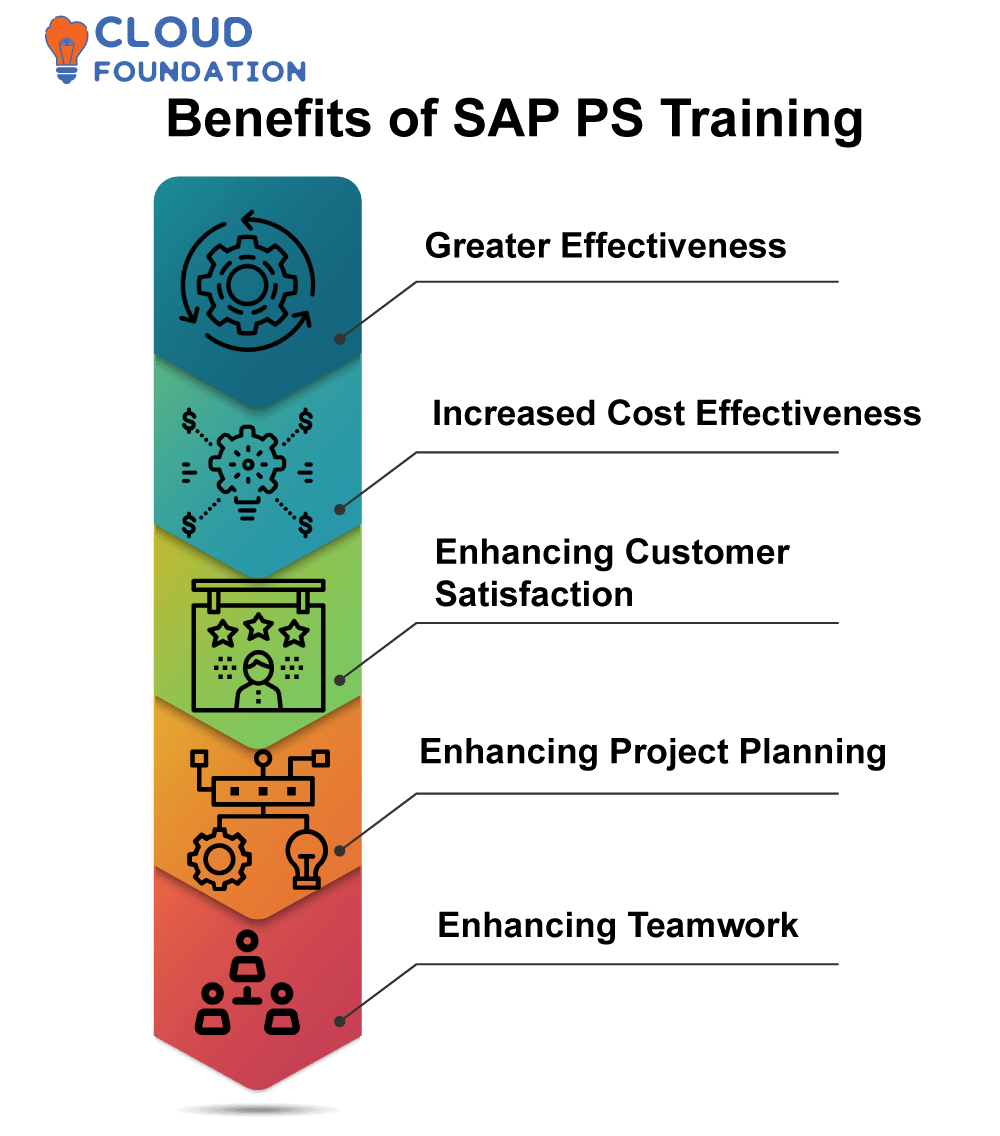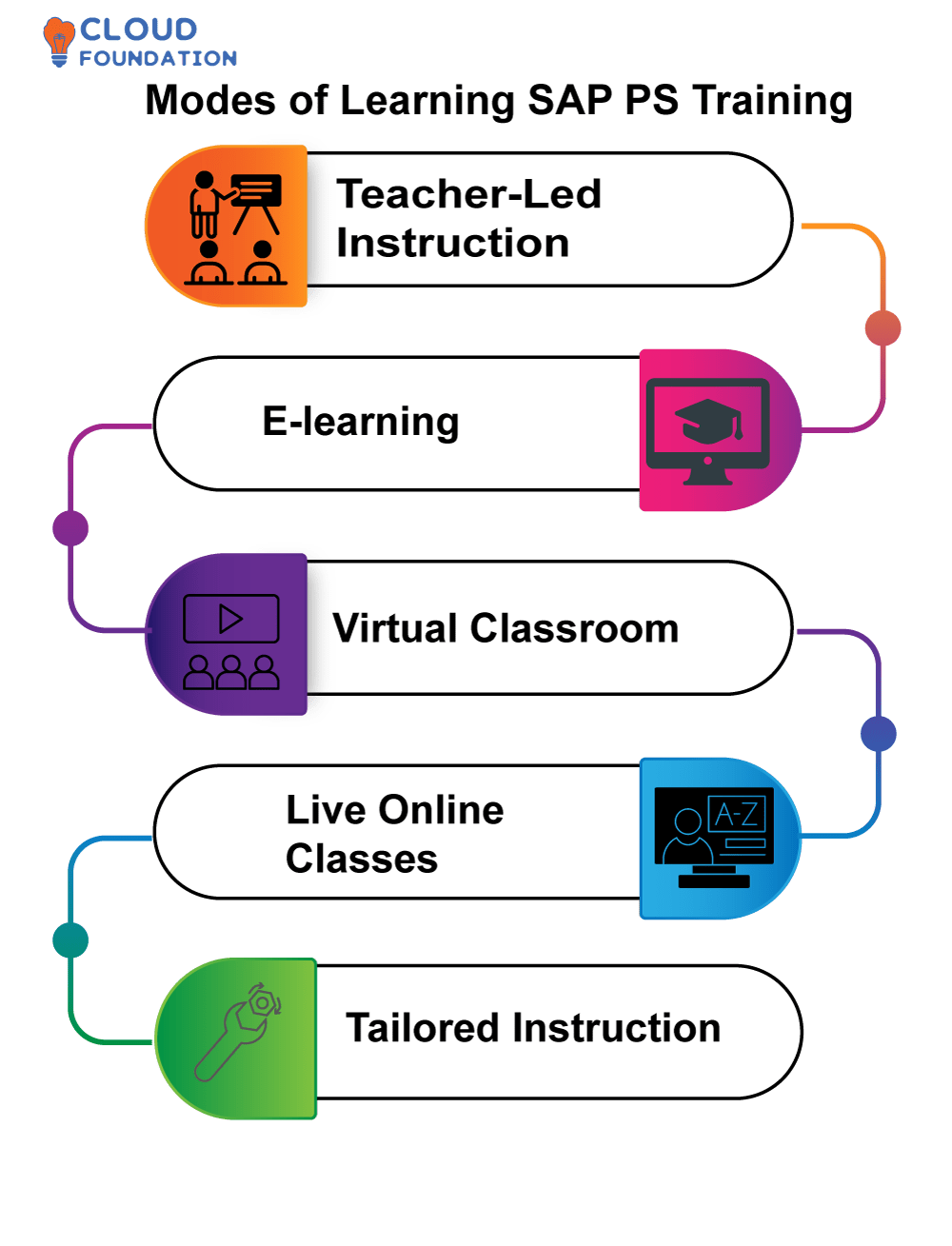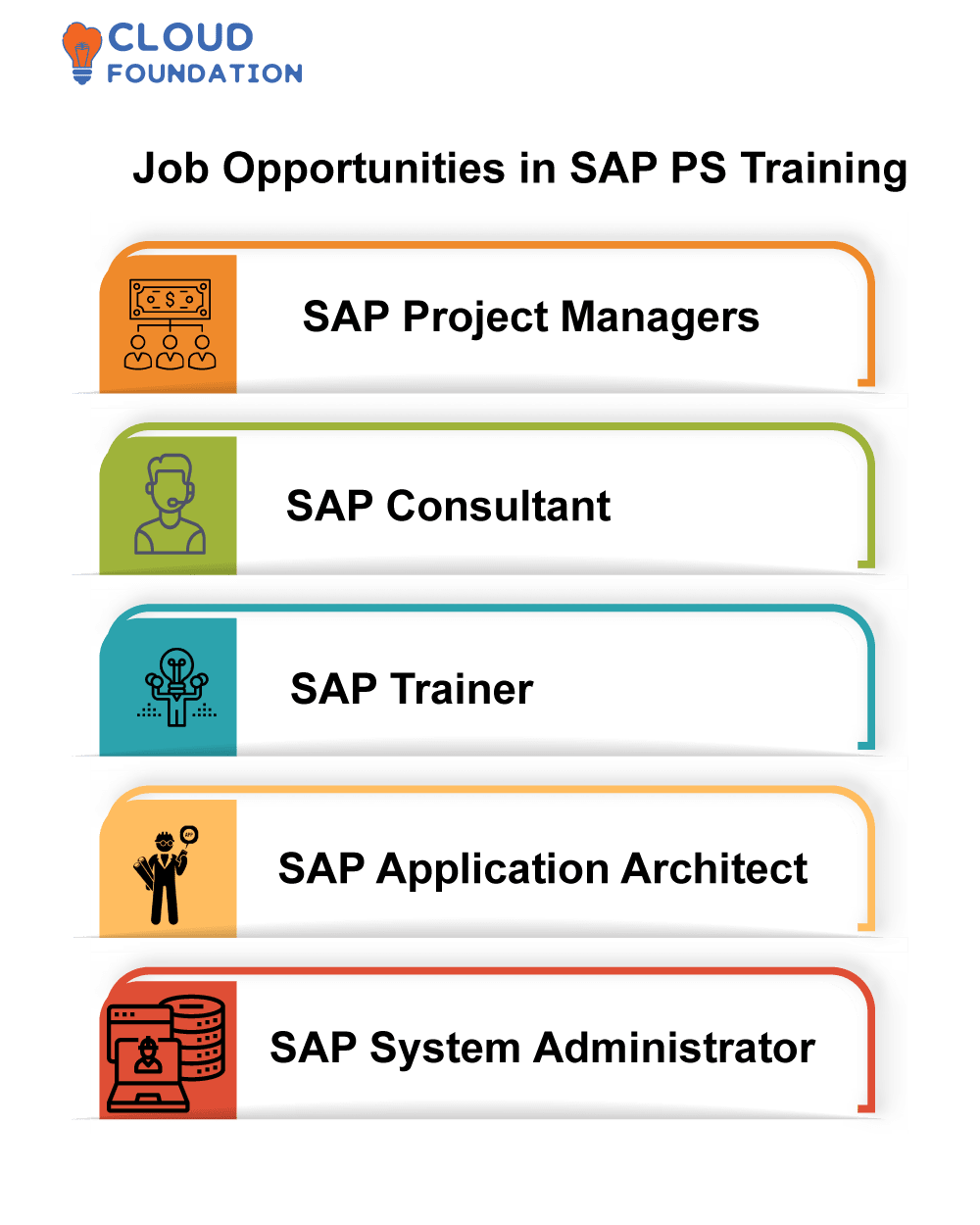SAP PS Training | Basics to learn SAP PS Course
This blog will introduce SAP PS Training and its benefits.
SAP PS training is an essential step for anyone wishing to improve their proficiency with SAP software for project management.
Through this program, participants will acquire the skills and knowledge needed to efficiently plan, carry out, and oversee projects inside the SAP system.
SAP PS (Project System) training equips people with practical experience and a thorough understanding of project management procedures, enabling them to manage projects effectively and support the growth of their company.
Introduction to SAP PS
SAP ERP Software’s Project System module serves to plan, budget and schedule projects while accounting for real costs accounting. Henceforth the SAP PS (Project System).
Companies using SAP PS can efficiently manage even large, complicated projects involving hundreds of activities and substantial resource demands.
SAP PS users benefit from being able to plan projects holistically, which helps ensure projects are completed on schedule without exceeding budgetary restrictions.

Once a project has concluded, users of the SAP Project Server can complete accounting and reporting tasks associated with it, analyze its results, and assess its performance.
Students can sign up for SAP PS training that equips them with the knowledge and capabilities required to configure and administer SAP PS applications.
SAP PS Training covers topics including creating an organizational structure for projects, devising plans and budgets, tracking costs and resources efficiently and analysing project outcomes.
Users with appropriate SAP PS Training can successfully oversee large and complicated projects within the SAP environment.
About SAP PS
Professionals gain the necessary to navigate and use SAP Project Systems (PS) with SAP PS Training.
This program will explore fundamental concepts related to PS, such as master data management, costing and budgeting processes, and planning considerations within an organization.
Furthermore, this workshop series will also address practical applications that could potentially be utilized.
Participants have the chance to gain knowledge of all of the tools that are available within SAP PS and its various points of interaction with other SAP modules.

SAP PS Training

Professionals will gain greater insights into utilizing SAP Project System as a result of this course, which offers an introduction to its use.
SAP PS training provides technical and functional consultants working within an SAP environment a forum in which to learn how PS integrates with other components within SAP.
This course is tailored towards consultants working within SAP landscapes. Professionals attending will learn to track project expenses while having complete visibility over project development.
Benefits of SAP PS

Greater Effectiveness: SAP PS training helps businesses maximize the output of their resources by optimizing project management processes, in turn resulting in more organized and productive project teams.
Increased Cost Effectiveness: Businesses can boost their cost effectiveness by decreasing administrative work required and optimizing expenses associated with project management when using an efficient process like SAP PS.
Enhancing Customer Satisfaction SAP PS can enhance customer satisfaction by helping project teams allocate resources efficiently while remaining apprised of real-time project developments.
Enhancing Project Planning: SAP Project System simplifies project planning by consolidating all relevant processes into one streamlined system – project scheduling, risk analysis and resource allocation are just a few examples – to speed decision-making processes faster and facilitate quicker decision-making processes.
Enhancing Teamwork: SAP Project Service Automation helps improve teamwork between teams and stakeholders by offering centralized access to project information, allowing better coordination and communication.
Prerequisites of SAP PS
A Working Knowledge of Project Management at a minimum, before commencing: SAP PS training, a basic knowledge of project management is needed as this tool assists with planning, monitoring, and controlling projects according to budget, resources and timeline.
Knowledge of SAP ERP: Acquiring expertise with this area will make operating it much simpler. Taking an enterprise resource planning class may provide helpful background material as you become adept with some core ideas of this module’s operation.

SAP PS Online Training

Familiarity with Project Scheduling Tools: Gaining experience using project scheduling tools like Gantt charts can aid in understanding how project plans and resource plans are generated in SAP PS.
Thinking Analytically: Thinking analytically is necessary in order to grasp the full concept of SAP PS and apply it within a project environment.
By addressing challenging situations efficiently and devising workable solutions quickly, project planning becomes simpler as is transitioned through the execution and planning phases more smoothly.
How Can I Learn SAP PS Training?

Courses typically feature video lectures, self-placed examinations and practice assessments, and access to an experienced trainer to guide and answer any of your queries or address your concerns.
SAP Learning Hub, SAP Training & Certification and SAP Global Education Services provide popular SAP PS courses online.
The SAP Learning Hub is an online learning platform offering access to over 400 classes for SAP customers from varying experience levels and jobs and practicing exams to cement knowledge. Furthermore, students gain access to mock examinations.

SAP Global Education Services provide video lectures led by qualified educators. In addition, their online learning platform facilitates self-paced learning, tests, and certifications for participants.
Modes of Learning SAP PS Training

Teacher-Led Instruction (ILT): ILT provides traditional classroom learning that relies on physical teachers who lead their pupils through all topics covered within a curriculum, offering immediate in-context assistance or direction as necessary.
E-learning: These programs often incorporate multimedia content, distributed across platforms including learning management systems (LMSs).
Virtual Classroom: The Virtual Classroom is an innovative training format which blends traditional classroom instruction with online learning using videoconferencing technology, enabling multiple learners to participate simultaneously at any one training session from different locations around the globe.
Live Online Classes: Live online classes offered via Adobe Connect or Microsoft Teams and presented live in real time involve teachers providing the curriculum of each course in an environment conducted online.
Tailored Instruction: Tailored instruction can be tailored specifically to meet the unique requirements of an organisation or department, tailoring itself according to particular goals or objectives.
Training on SAP Project System (SAP PS)
SAP Project System training primarily covers how to configure, create and administer projects as well as work breakdown structures on this software application.

It addresses topics like defining projects, designing networks, budgeting resources and costs and revenues and integrating with other SAP modules – among many other subjects – along with developing skills necessary for project definition, management and evaluation, and related activities. Through participation, attendees acquire these essential capabilities.
Job Opportunities in SAP PS Training

SAP Project Managers: They play an essential role in overseeing and overseeing SAP deployments successfully and reliably, from budget management and team coordination through building solutions, mapping processes and providing integration assistance.
SAP Consultant: SAP consultants offer businesses expert guidance and advice that allows them to maximize the use of all available SAP products and services, thus making the most out of SAP products and services for themselves.
They identify, investigate and resolve technology-related issues; optimise business procedures; and create SAP solutions tailored specifically for their organisation’s goals and objectives.
SAP Trainer: SAP trainers are accountable for providing instruction and advice to their workers as well as clients about how best to utilize SAP products.
Responsible for developing, updating and providing training material as well as individual and group sessions on various SAP topics, these professionals also perform maintenance on training facilities across Canada.
SAP Application Architect: They identify deficiencies within existing systems, develop creative solutions to plug them up and construct secure yet scalable infrastructures.
SAP System Administrator: An SAP System Administrator is responsible for designing, installing, configuring and maintaining SAP systems to ensure the overall health of an IT system, along with stability, performance and scalability for SAP apps.

SAP PS Course Price

